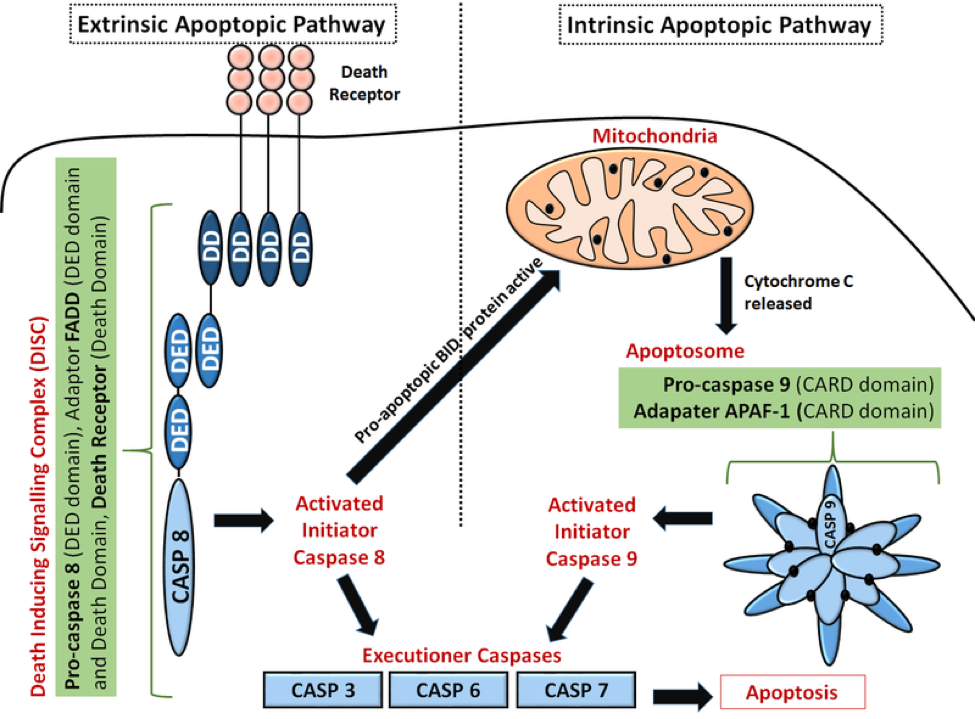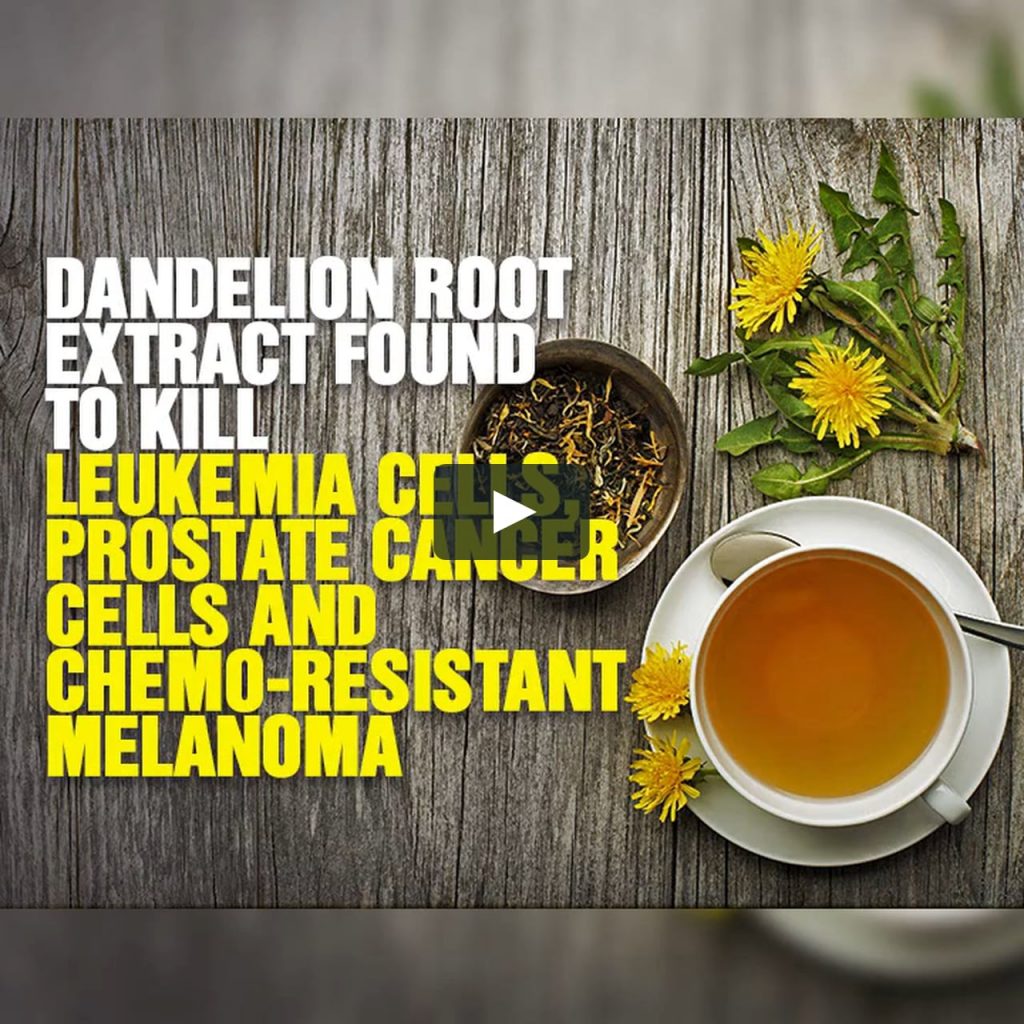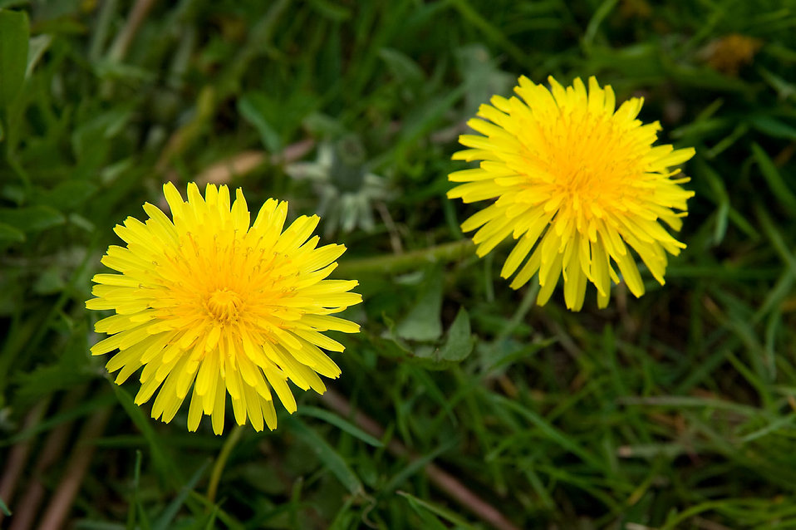Introduction
In a few months’ time, when you glance outside at the field of a dandelions ruining your luscious green lawn, think twice before you exterminate them. Dandelions might not be the prettiest plant growing in your garden, but they actually have multiple benefits. The health benefits can range from soothing joint or muscle pain to fighting off viral infections. Some folks use dandelions to make dandelion wine or use dandelion root as a substitute for coffee. If you are still thinking dandelions are an ugly do nothing weed, you might be surprised at the new evidence claiming that dandelions are able to combat cancer. How do dandelions fight cancer? The answer to that question is apoptosis.
Apoptosis is programmed cell death. Having a mechanism for cell death is important for many reasons including maintaining tissues throughout the body as well as sculpting body parts during development. This rapid programmed cell death is caused by a caspase cascade. Caspases are activated from procaspases due to the aggregation of the initiator procaspases that have residual proteolytic activity. This activation can be intrinsic or extrinsic.
Apoptosis Pathways
The extrinsic pathway involves transmembrane death receptors on the target cell and ligands produced by surrounding cells. For example, the killer lymphocyte cell is able to produce the Fas ligand on the surface of its membrane. A Fas receptor (known as a death receptor) on the target cell is able to bind to the Fas ligands which causes the binding of an adapter protein on the receptor’s cytoplasmic side. These adapter proteins are able to bind inactive procaspase-8 which causes the procaspases to aggregate. Aggregation allows activation of the caspases causing the caspase cascade to trigger apoptosis.

Author: Tsgupta
Permission: Creative Commons Attribution Share Alike 4.0
The intrinsic pathway usually occurs due to cellular stress such as DNA damage or heat shock. It begins with the mitochondria releasing its inner components. This leads to cytochrome c leaking into the rest of the cell. Within the cytoplasm there are Apaf-1 proteins that bind to cytochrome c. The binding of cytochrome c to Apaf-1 causes the aggregation of Apaf-1. Procaspase-9 then binds to Apaf-1 and the aggregation of the procaspases activates them into caspases which triggers the caspase cascade leading to apoptosis.
Dandelions and Apoptosis
Now that you know a little bit more about apoptosis, you can fully appreciate the mechanism behind a dandelion’s cancer fighting capabilities.
The study by Ovadje et al. tested the anti-cancer capabilities of an aqueous dandelion root extract. Their results revealed that the dandelion root extract was able to induce apoptosis of greater than 95% of colon cancer cells. Other studies have been performed which reveal that dandelion root extract is capable of fighting a variety of different cancer types.
Dandelion root extract activates the extrinsic pathway of apoptosis, which in turn activates caspase-8, but it is not the only method by which dandelions induce apoptosis. Ovadje et al. determined that the dandelion root extract induced the expression of multiple cell death promoting genes. Death promoting genes. That may be great to have an increase in the expression of cell death genes in cancer cells, but what about all the healthy cells in the body? Does dandelion root extract cause an increase in death promoting genes in healthy cells? In case I haven’t sold you on dandelions yet, this might do the trick. The dandelion root extract not only doesn’t increase death promoting genes in healthy cells, but it actually down regulates these genes and up regulates pro-survival genes! The dandelion root extract selectively targets the cancer cells for apoptosis and influences healthy cells to stay alive!
The dandelion’s capability of expressing apoptosis genes allows it to engage in multiple different cell death pathways including the intrinsic pathway with the destabilization of the mitochondrion membrane. Having multiple different pathways induce apoptosis on cancer cells is one of the main reasons why dandelions should be taken more seriously.

A video summarizing the findings from The University of Windsor.
By: NaturalNews
Permission: Creative Commons Attribution 3.0 Here is the link for the video.
Conclusion
Maybe dandelion wine isn’t your favourite, or you would prefer to drink coffee instead of using a dandelion root as a substitute; however, the choice between undergoing chemotherapy or being prescribed a dandelion root extract is a no brainer. The ability of dandelions to specifically target the cancer cells for apoptosis and increase the longevity of healthy cells would have much less side-effects compared to the magnitude of cancer therapies we have today. Unlike dandelion root extracts, many forms of chemotherapy are unable to differentiate between healthy cells and cancer cells. When the snow finally melts, and the dandelions begin to pop up all over your lawn, instead of pondering the different ways you can exterminate them, I hope you begin to think about the different ways dandelions can save lives, one cell death at a time.


Recent Comments